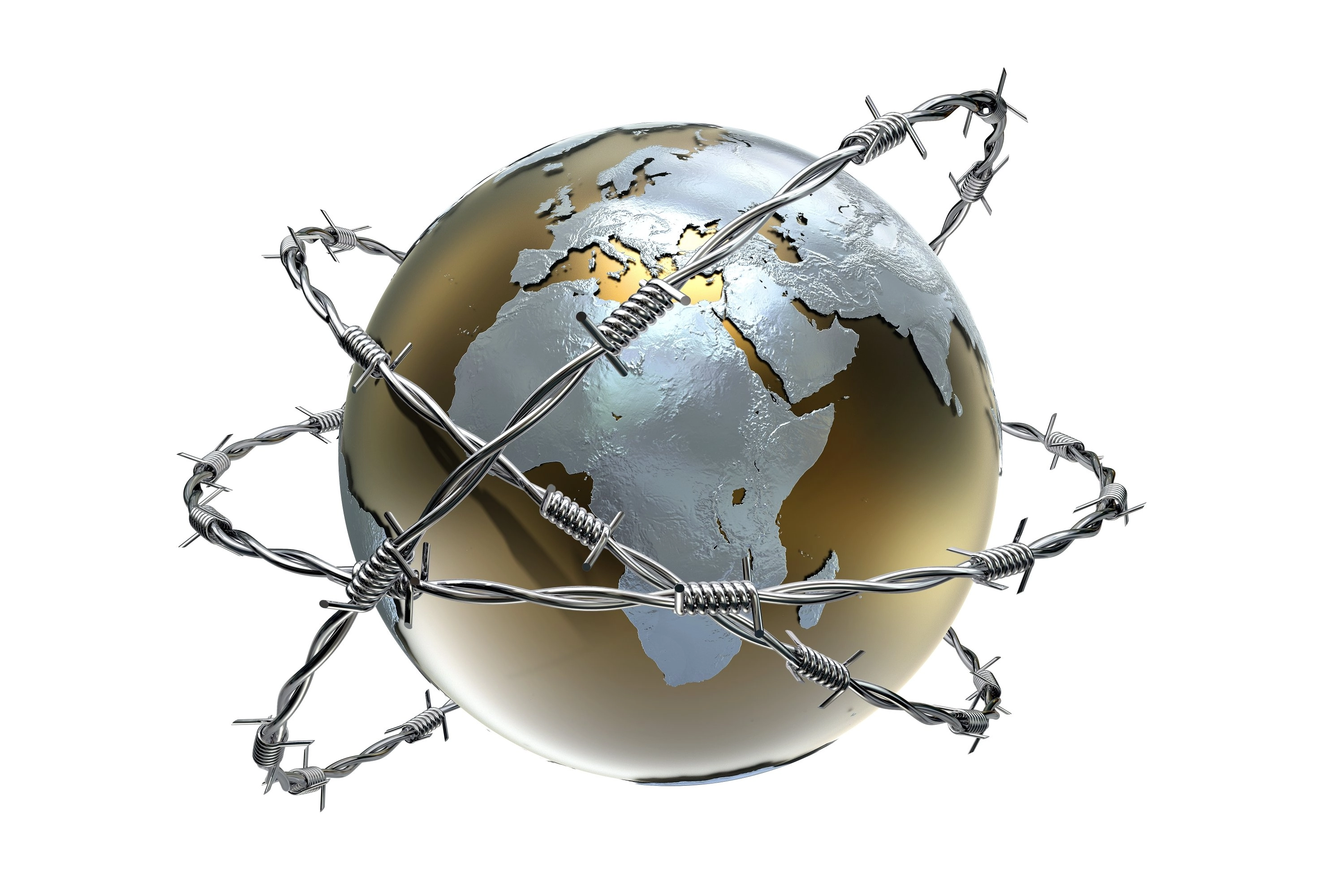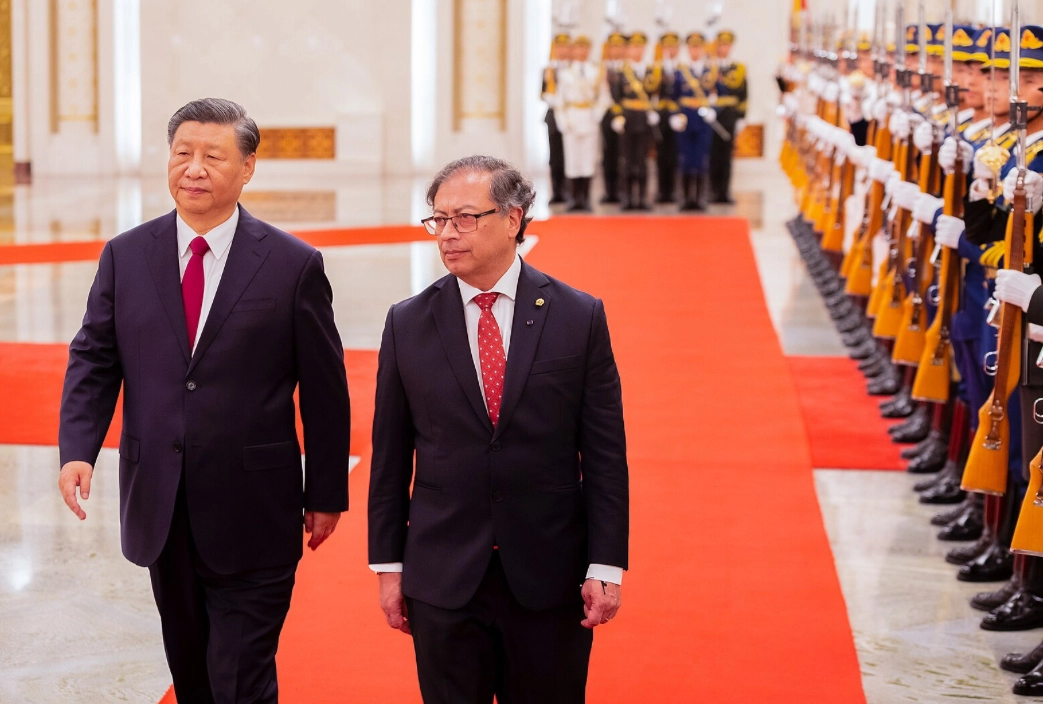Following the massive attention it received in the early 2010s, the momentum of the Chinese Belt and Road Initiative appeared to have slowed down in recent years, primarily driven by economic downturns and geopolitical competition. That said, recent developments indicate that the Chinese diplomatic-economic project continues to attract new participants, this time one of Washington’s most proximate regional security allies, Colombia.
Over the past several years, China has steadily deepened its engagement with Colombia across key areas like trade, diplomacy, and infrastructure, becoming its second-largest trading partner by 2018. The State Council of the PRC has stated that since 2023, China has been seen as a key market for Colombian agricultural goods, such as beef and coffee, with bilateral trade exceeding USD 20 billion last year, a figure that continues to rise. According to data from the General Administration of Customs in China, the first four months of 2025 saw the highest volume of trade ever recorded between the two countries.
Colombian President Gustavo Petro formalised his country's intent to participate in China’s Belt and Road Initiative (BRI) during a state visit to Beijing earlier this month. The agreement, signed with President Xi Jinping after the Fourth China-CELAC Forum, signals a deepening of ties between the two nations in areas such as infrastructure and artificial intelligence. During an interview following the signing of the agreement in Beijing, President Petro also mentioned furthering cooperation in the forestry and agricultural sectors. Bogotá’s $6 billion metro project, largely financed and constructed by Chinese firms, has already become a visible symbol of Beijing's growing presence in the country. The Colombian president did however caveat caution, emphasising the “non-binding” nature of the agreement and stating that future governments will decide if intention becomes reality.
The American Position
Colombia's decision to join the Belt and Road Initiative marks a potential turning point in the geopolitical balance of the Western Hemisphere. As China’s influence grows, the United States faces the challenge of recalibrating its approach to the region, especially as these developments have occurred against a backdrop of strained relations. Earlier this year, a trade dispute nearly erupted over Colombia’s refusal to accept U.S. deportation flights, exposing the economic vulnerabilities that make the siren song of Chinese partnership so appealing. While roughly 25% of Colombia’s exports remain bound for American destinations, China’s economic influence is rapidly expanding, and without sustained investment and engagement, Washington risks ceding influence in the mid to long term.
The deepening of ties between Colombia and China has raised alarms in Washington, particularly regarding regional security. The situation in Peru, where China has become the dominant economic partner, offers a potential glimpse into Colombia's future. Chinese involvement in infrastructure projects, such as the megaport in Chancay, has raised concerns about potential dual-use facilities that could support PLA military operations. As China increasingly becomes the primary destination for South American resources, the United States risks being sidelined or at least playing a lesser role than it has in the past. The dominance of Chinese firms like Huawei in Colombia’s telecom sector has also sparked fears about data security and surveillance.
Regional Implications
The allure of economic opportunity met with tariff-induced geopolitical pragmatism may signal more regional shifts in favour of the PRC. This is especially true given the uncertainty of the Trump Administration, which may cause governments in LATAM opt for a more stable and long-term course, by formally endorsing the initiative, while securing investment funding in the process.
The shift also has broader economic implications for the region and the world. As countries like Argentina begin to settle trade in Yuan, the dominance of the U.S. Dollar is increasingly challenged. Chinese-funded projects offer alternative avenues for growth and development, potentially weakening the leverage Washington has long held in the region.
In the medium term, a more proactive engagement with the region in other areas seems likely. If clear success in Colombia becomes evident, countries that have been sitting on the fence or who are allies to Taiwan, such as Paraguay, may reconsider their positions with regards to Chinese investments. China could also play a more prominent role in overcoming regional security challenges. While seemingly unlikely, this scenario is not unthinkable, if Beijing’s mediation between Iran and Saudi Arabia, or more recently between India and Pakistan are anything to judge by. This could, for example, materialise in mediation between the government in Port-au-Prince and the armed gangs threatening it, or by facilitating humanitarian aid following natural disasters.
Forecast
Despite earlier setbacks, vis-a-vis Brazil or Panama for example, China’s engagement with LATAM and the Caribbean is not only here to stay, but also appears to be accelerating with further investments in the region. Colombia’s willingness to formally embrace the BRI can be considered a major diplomatic and economic win, and a feather in the cap for Beijing’s regional policy. Its success will hinge on whether or not its project partners can manage to overcome previous shortcomings and known challenges to project implementation, such as late deliveries, unsupportable debt, inability to meet contractual obligations, unforeseen costs, negative externalities, and many more. On the Colombian side, as stated by Petro, Bogota’s embrace of Chinese investments will depend primarily on whether or not the Colombian population views the signing of the cooperation agreement as positive. And while its influenced is diminished, the US still has the ability to play kingmaker in most of LATAM. The US may be able to counteract some of Beijing’s efforts by continuing to provide aid and investments in areas of need. But if the region continues to face tariffs and economic uncertainty, it may have to cede influence, one BRI project at a time.




